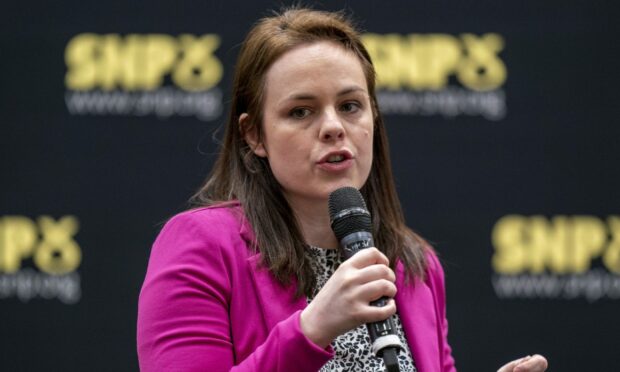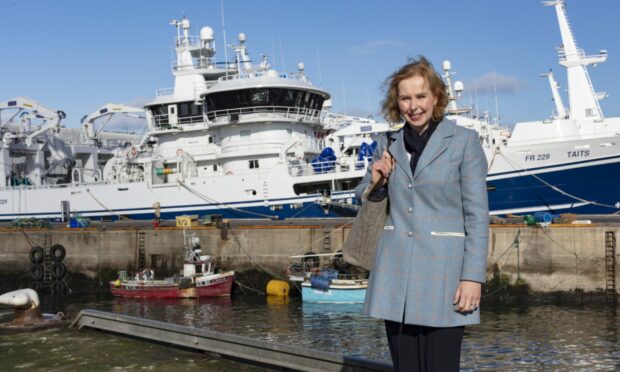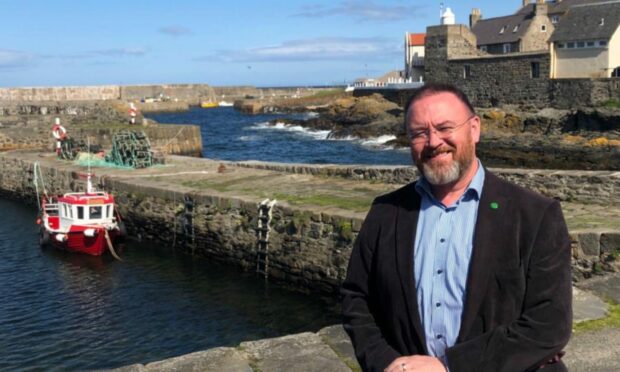Highland MSP Kate Forbes has hit out at plans to make at least another 10% of Scottish waters off limits for fishing, saying they are an example of “how not to do government”.
The leadership hopeful said the proposals would “decimate” the seafood industry as she vowed to “reset” relationships and work with coastal and island communities.
Work is due to begin this year to find the most appropriate locations for the strict conservation zones, known as Highly Protected Marine Areas (HPMAs).
Ms Forbes has vowed to scrap the plans, which formed part of the Bute House Agreement with the Greens, if she is named SNP leader on Monday.
Instead, she would commission a feasibility study into devolving marine protection and inshore fisheries powers to local councils.
The Scottish Government, which is consulting on the proposals, says the zones provide the best possible chance of protecting and restoring marine ecosystems.
Commercial and recreational fishing would be banned in the designated areas.
Fishing industry leaders claim they will be “catastrophic” for Scotland’s fishing fleet.
Impact on island communities
The MSP for Skye, Lochaber and Badenoch said the current plans will have a “disproportionate socio-economic impact on our island and coastal communities”.
She added: “I cannot understand why anyone, particularly when we are deliberately trying to stem depopulation in rural areas, thought it would be a good idea to take such a blanket approach.
“This current consultation illustrates the perils of poor engagement with communities and the rural economy.
“It’s an example of how not to do government. And it is also an example of what I want to do differently.
“Under my leadership, I will re-set these relationships and work with coastal and island communities and their associated industries in an amicable and constructive fashion.”
Elspeth Macdonald, chief executive of the Scottish Fishermen’s Federation, welcomed Ms Forbes’ opposition to the plans.
She said the decision is “based on politics, not science”.
She added: “Instead of letting their blue economy proposals be hijacked by the Greens to push fishing into the red, the government needs to have much better dialogue with those whose livelihoods depend entirely on our marine resources.
“It is vital that policy making is evidence-based rather than just reflective of the views of those who may be passionate about the planet but often seem to have little understanding of reality or science.”
‘Radio silent’
Banff and Buchan MP David Duguid claimed Ms Forbes had only decided to “put her head above the parapet” since the launch of the SNP leadership race.
However, Ms Forbes was on maternity leave from July, returning earlier than expected last month after putting her name forward to become first minister.
Mr Duguid said: We have seen throughout this leadership race that every single one of these candidates have flip-flopped their views to suit the narrative.
“On the other hand, I regularly engage with industry leaders and stand up for what is right for our fishing industry in the north-east.
“This central belt government including Kate Forbes have been in the thrall of their Green partners and have done nothing to ease the concerns of the sector and the disastrous consequences HPMAs would have on the Scottish fleet.”
The agreement that secured the co-operation agreement between the SNP and the Greens stipulated at least 10% of Scotland’s waters would be afforded highly protected marine area status.
Marine Protected Areas (MPAs) already cover 37% of Scottish waters.
The proposals are out to consultation until April 17, with a proposed timeframe to have them up and running by 2026.
‘Climate and nature crisis’
Environment Minister, Mairi McAllan, was asked about concerns from the fishing sector at Holyrood on Tuesday.
She said: “My position is exceptionally clear: we are in the teeth of a climate and nature crisis and the window within which we can take action commensurate with that challenge is narrowing.
“We must be bold, and the introduction of HPMAs is a bold proposal.
“By the same token, I am equally clear that everyone who will be affected by the policy will be deeply and widely consulted as we develop that policy.”


